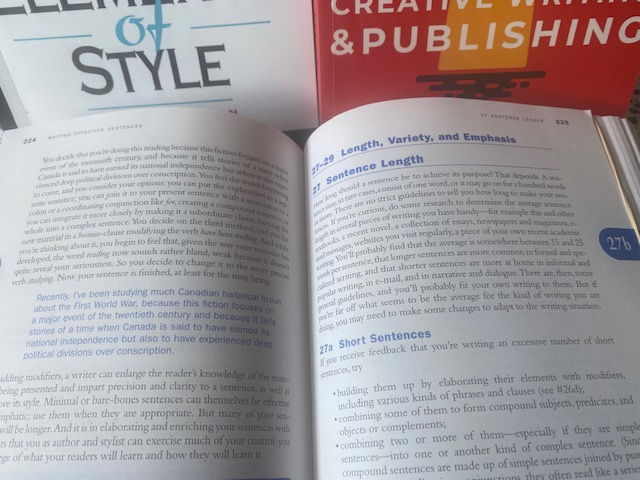It’s the message in your email, the story in your novel, and the information in your article or nonfiction book that is important to the reader. So, make them as clear and concise as possible. One way of doing this is to avoid converting verbs into nouns. Free the verbs to do their job of moving the action forward. For example, don’t say, “We failed to reach an agreement.” That takes three times the number of words as saying, “We disagreed.” That’s a waste of the reader’s time. And nouns are boring. Verbs engage the reader. That’s important in today’s world of distractions.
Here are a few more examples. Instead of, “He submitted his application by mail,” say “He applied by mail.” Replace, “He gave an explanation for his actions,” with “He explained his actions.” And in place of “She issued payment for her membership fees,” write, “She paid her membership fees.”
There are other ways to cut down on verbiage by replacing wordy expressions with a single word or two. For example, “Until such time as,” becomes “Until.” “During the time that,” becomes “While.” “In a satisfactory manner,” becomes, “Satisfactorily.” “As of this date,” becomes “To date.” “With the possible exception of,” becomes “Except,” and “The only other alternative,” becomes “The alternative.”
Watch for redundancy as well. So many words in the English language mean the same thing or are so close in meaning that we have gotten into the habit of including them in pairs, such as close proximity, basic fundamentals and end result. The length of many messages can be reduced by a third or more simply by deleting all the needless repetition. For example, Larger in size (how else could it be larger?) becomes simply “Larger,” and Regular weekly meetings (as opposed to irregular weekly meetings?) becomes simply “Weekly meetings.”
Ask yourself if the opposite of an adjective or adverb makes sense. If the answer is no, it’s probably unnecessary. Don’t use considered opinion if an unconsidered opinion wouldn’t make sense. And don’t use practical experience if impractical experience doesn’t make sense. If you can eliminate a word without changing the meaning of a sentence, do so. The more in “more preferable” is redundant because preferable already means more desirable. In the same way, very in “very unique” is redundant because unique means one of a kind. You can’t be more different than that!
Here are a few more examples of needless words and why they are superfluous:
My own personal feelings (as opposed to my impersonal feelings?)
Free gift (are there gifts that are not free?)
With my own eyes (as opposed to someone else’s eyes?)
New recruit (as opposed to an old recruit?)
Potential hazard (Don’t all hazards have potential?)
Stupid mistake (are there smart mistakes?)
Past experience (as opposed to experience that hasn’t happened yet?)
Possible choices (as opposed to impossible choices?}
Rename it something else (as opposed to renaming it the same thing?)
Sworn affidavit (Don’t all affidavits have to be sworn?)
Past history (as opposed to future history?)
In two equal halves (is there such a thing as unequal halves?)
I was quite disappointed when I started writing for publication. The time spent increasing my vocabulary as a child was wasted as far as editors were concerned. One editor, when rejecting a short story that I had submitted, told me, “People don’t talk like that.”
So, if you happen to be writing for publication, rather than to impress, I will leave you with a few shorter equivalents for commonly used words: functionality (function); numerous (many); individual (person); remainder (rest); initial (first); implement (do); sufficient (enough); attempt (try); effectuate (effect); utilization (use); terminate (end); accordingly (so); adjacent (next); acquire (get); demonstrate (show); elucidate (clarify); and incision (cut).
For more examples of shorter words and expressions, cliches, redundancies, etc., refer to my eBook, How to write articles for self-promotion, published by Bookboon.com. Remember that in all communication, both brevity and clarity are important.


Recent Comments